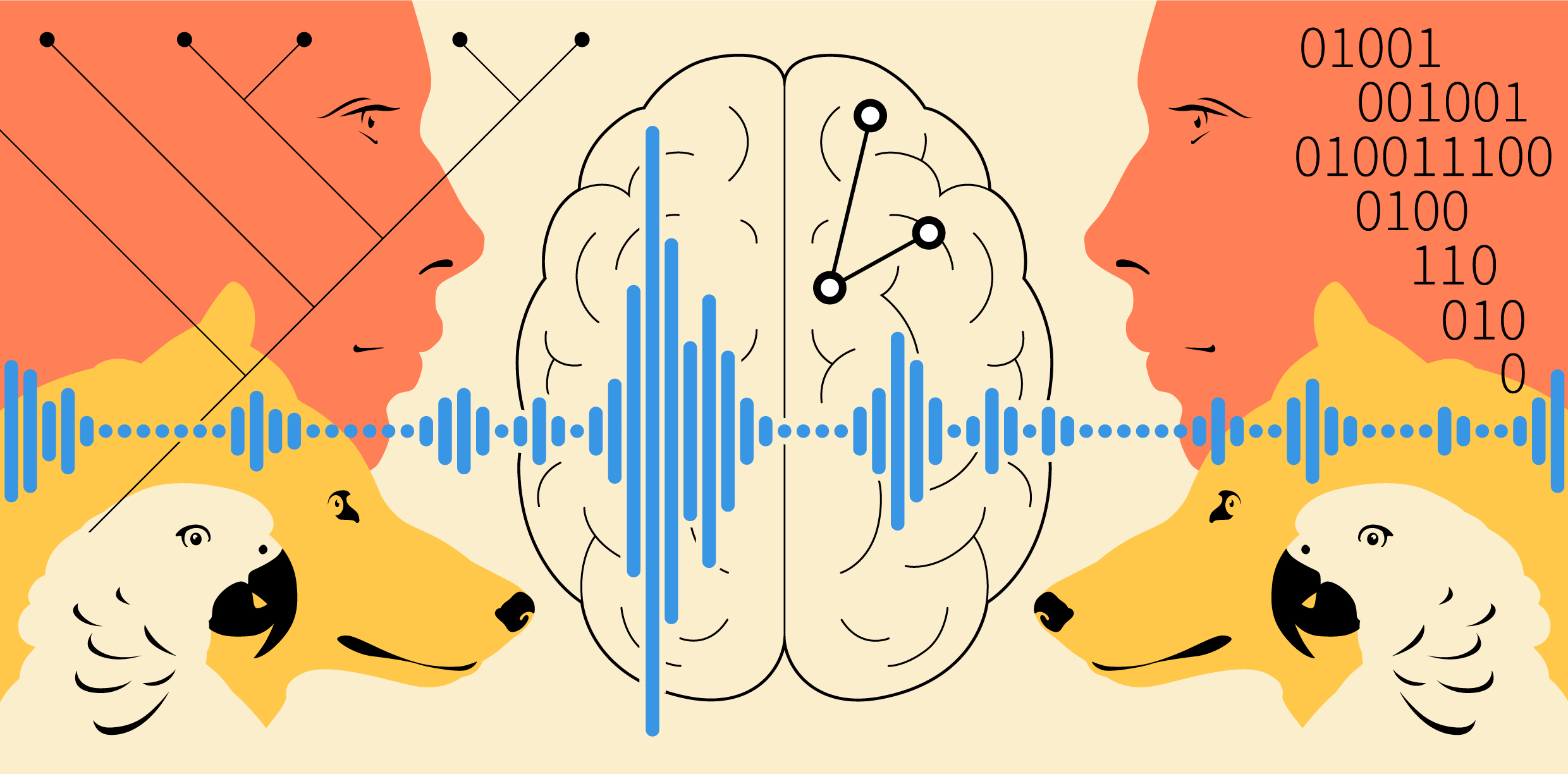Evolutionary Language Science (Specialized Master of Science)

What is Evolutionary Language Science?
Language is a defining ability of humans
Nonetheless, we still know little about its evolution. Evolutionary Language Science seeks to unravel the evolutionary origins and continued evolution of language in our species, both in terms of the human brain’s capacity for language and the individual languages that we learn and use.
This Master’s program in Evolutionary Language Science
This program addresses the past, present, and future of language using an empirical and quantitative approach, integrating multiple disciplines: neuroscience, linguistics, biology, computer science, mathematics, anthropology, philosophy, and psychology.
Program Overview
This program provides students with a comprehensive interdisciplinary understanding of the core concepts and research questions in Evolutionary Language Science. Furthermore, students will acquire advanced conceptual and methodological skills, including empirical research abilities and statistical expertise, to address at least one of the following key topics:
- Animal communication: Shared cognitive and communicative abilities between humans and nonhuman animals
- Language change: How and why languages change, what they have in common, and how this is impacted by social media and AI
- Language acquisition: How languages are acquired by children across diverse cultures
- Brain and language: What happens in the brain when we talk
- Neurotechnology and AI: How they affect language skills and how results can be used to clinically restore or improve them
Finally, students will gain in-depth knowledge on how to design and conduct an interdisciplinary research project in Evolutionary Language Science, and will be able to present their results clearly, both orally and in writing.
Career prospects
This Master’s program primarily equips students for academic careers in the humanities as well as in the social and natural sciences. Depending on the chosen study plan, graduates will also be prepared for diverse career paths related to language and language technologies, including roles in:
- Private sector companies (e.g., tech industries, neuroscience firms, language learning organizations)
- Museums and cultural institutions
- Science communication
- Speech and language pathology fields
- Policy development and advocacy
- Educational institutions
- Intercultural communication and consultancy
Language of instruction: English
